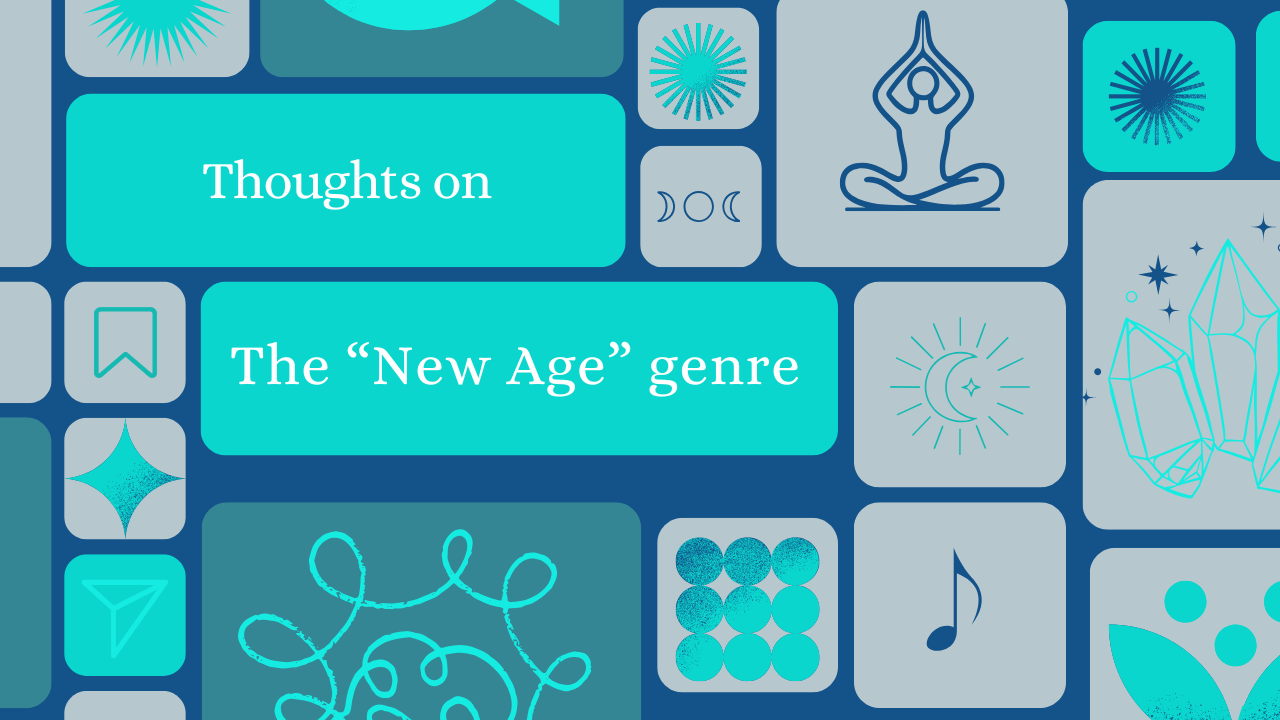Thoughts on the New Age Genre
There’s been some buzz in the New Age community about this year’s GRAMMY ballot and the direction of the genre as a whole. I wanted to share a few thoughts.
I am deeply honored to be part of what I believe is one of the most beautifully diverse New Age ballots yet—one that includes members from historically underrepresented communities, including women, BIPOC, and LGBTQ+ artists, as well as music that supports healing, processing grief, easing anxiety, and nurturing personal growth.
As someone who has studied the New Age genre (and the origins, musicality, and science of electronic, ambient, and healing music) for more than two and a half decades - and who has been composing New Age music since before I even knew there was a name for it - I’ve always felt a deep responsibility to honor where this music comes from, and equal excitement to be part of where it’s headed.
Examples: -When I was eight years old, I wrote a handful of piano pieces that didn’t follow sonata or sonatina form—the only structures I’d been taught at the time. My teacher told me they weren’t “right.” In reality, I was already writing New Age music.
-In 2004, I went from being the assistant tech at a jingle house to becoming an in-house composer because, as they told me, I “understood how to articulate the desired emotion.” What I didn’t realize then was that I was composing New Age music.
-In 2012, during ASCAP’s month-long Lester Sill Songwriter's Workshop, Dan Wilson told me my pop songs were too “sophisticated” and my lyrics too “esoteric.” At the time, it felt like the pop/singer-songwriter world was rejecting me—but really, I was writing New Age music.
-In 2021, when my contemporary classical piece with Dallas String Quartet, Quantum Equivalent, was removed from the classical ballot, it was because… I had written New Age music.
I believe that New Age music is, at its heart, welcoming, inclusive, and experiential for both the creator and the listener. It pushes musical boundaries, draws from a wide range of influences, and, at its best, offers a space for peace, processing, and healing.
For those who may feel uncertain about the changes within New Age music, know that evolution is a natural and vital part of any living art form. As an experiential composer, I’m deeply inspired to weave the genre’s rich history into new work that honors the past while embracing the future.
I also know there are feelings about the somewhat recent change to the category title for these GRAMMY Awards to include Ambient and Chant, and how to compare such a wide range of music. While it’s something we’ll simply have to sit with for now, I’ve been imagining a bit of categorical Tetris: what if the “Gospel & Contemporary Christian” field were renamed to something more inclusive—such as “Spiritual, Devotional, or Religious Music”—so that multiple faith traditions could be honored? In that model, Chant could have its own space, and genres from other religions still seeking a home on the ballot, including Jewish Music, might finally find one. But for the moment, we look at what’s in front of us—and to me, there is still so much worth celebrating.
As someone who represents this genre not just musically but in spirit, my hope is that the openness, kindness, and progressive nature of this music continue to guide how we treat (and talk about) one another, and every artist doing the brave work of creating and releasing art into the world today.

